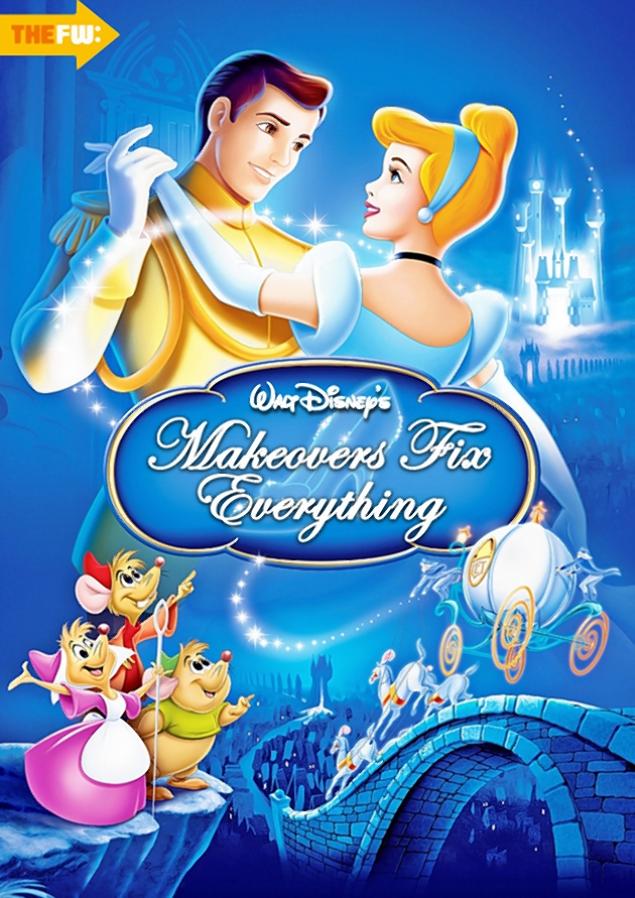Every kid looks forward to growing up. They can’t wait to stop playing “house” and pretending to be a grown up. Kids want to be just like their parents and older siblings. They imagine driving a car, staying up late, having kids of their own. Children can’t wait to be independent and free. (Provigil)
Kids believe that as soon as they turn thirteen, they begin to come out of a cocoon and emerge as a beautiful butterfly who is automatically successful. They are sorely disappointed when they reach their teens and find that life is not like a Disney movie. The idealist images that children grow up with lead them to expect experiences akin to High School Musical and Cinderella. Several friends of mine were surprised when no one spontaneously sang and danced on the first day of freshman year.
Disney movies constantly produce idealized stories in which every character is flawless. The princess is beautiful and pure. The prince is handsome and brave. Their love is endless and there is always a happy ending. Fairy tales result in impractical visions of romantic relationships. For instance, one constant storybook theme is that love is based on beauty. This idea is not a good model to portray to children. Another example is that the male will save and support the female. Sexist views are still being fed to both boys and girls as they are told all they need to be happy is a relationship. However, there are usually other factors to consider in real life.
As much as I love a good Disney movie, young, impressionable kids set high standards that will most likely disappoint them.
Children who grew up with Disney have been anticipating and expecting to have happy endings for years. Boys wait for their damsel in distress and girls wait for their knight in shining armor. They can’t wait to find their special someone and live out the perfect life they’ve always dreamed of.
Girls are especially prone to expecting a perfect high school experience. Girls imagine that they will date the perfect boy, be the star cheerleader, get all “A’s,” and of course, be the most popular girl in school. They are surprised when all of their dreams don’t come true, contrary to what Disney has been telling them for their entire lives.
Boys, on the other hand, anticipate being the coolest kid in school. Every girl will want to date him and every guy will want to be him. Young teenagers are shocked when the life they envisioned falls short of par.
 Discouraged adolescents then begin to look forward to a picture-perfect adult life. They plan on going to the perfect college, marrying the perfect person, living in a perfect house, and having perfect kids. As time passes and plans go awry, they become frustrated and disillusioned. Some young adults may even become depressed because they feel that they have not lived up to the world’s standards.
Discouraged adolescents then begin to look forward to a picture-perfect adult life. They plan on going to the perfect college, marrying the perfect person, living in a perfect house, and having perfect kids. As time passes and plans go awry, they become frustrated and disillusioned. Some young adults may even become depressed because they feel that they have not lived up to the world’s standards.
These are unrealistic standards.
Children who grow up in a culture in which perfection is expected will not be successful. They may be more ambitious, but as soon as they figure out that perfection is impossible to achieve, they begin to give up and become cynical. They feel like failures because they cannot reach their dreams, even though they have been working towards perfection all their lives. Realizing that perfection is impossible is a slap in the face. If young adults believe that they are failures, they will give up.
Adults who feel that they will never be good enough may try to be successful by ensuring that their children have perfect lives. This vicious cycle will continue if our culture does not change. Unrealistic goals are detrimental to our children. If the next generations feel as though they have failed because they were unable to do the impossible, the future will be full of despondent people.
We must stop pressuring kids to be perfect.
It is simply mean to make our children feel like they have disappointed everyone because they are not perfect. If we teach children that everybody makes mistakes because nobody’s perfect, they will not be afraid to fail.
Making mistakes is important to the learning experience of children. Life is about learning from trial and error. George Bernard Shaw, a Nobel Prize winning poet, said, “A life spent making mistakes is not only more honorable, but more useful than a life spent doing nothing.” If everyone was afraid to make mistakes, then absolutely nothing would be accomplished.
However, children should be encouraged to dream big and accomplish whatever they wish to do. They shouldn’t be forced into standards and stereotypes and clichés. They should feel comfortable breaking the mold, thinking outside of the box, and being individuals. The high expectations our society sets are holding them back, not challenging them.
Maybe it would be easier if Peter Pan just took us all to Neverland, where we would never grow up and of course, live happily ever after

Leave a Reply